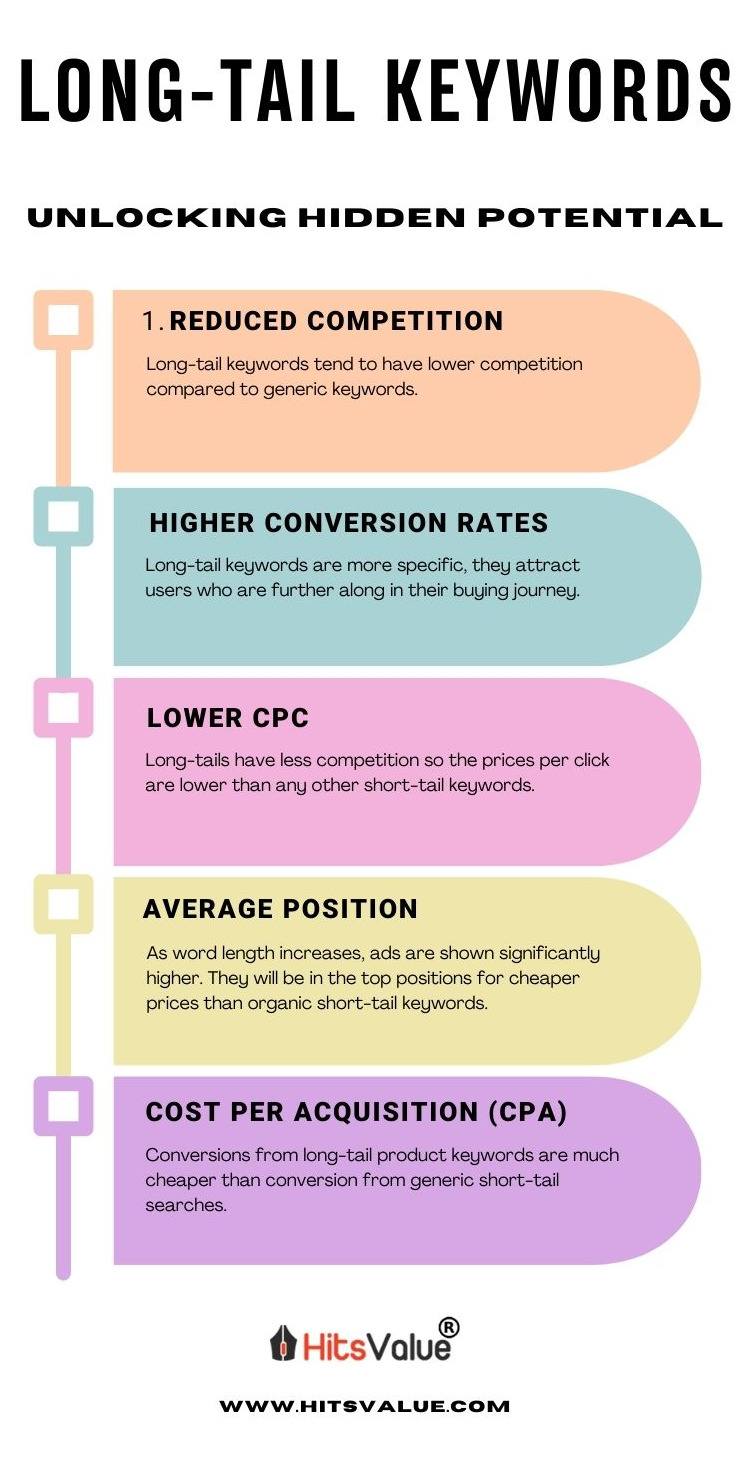#keyword strategy
Text
2 notes
·
View notes
Text
#Power of reach#what is reach in digital marketing#digital marketing services in hyderabad#seo for small bussiness#digital-marketing#seo#seo for entrepreneurs#keyword strategy#long tail keywords#conversational keywords#is your website reaching
1 note
·
View note
Text
Demystifying SEO: A Guide to Unraveling the Secrets of Online Visibility

In the labyrinth of digital marketing, Search Engine Optimization (SEO) stands as both a beacon of opportunity and a source of confusion for many businesses and content creators. Yet, understanding the fundamentals of SEO is essential for unlocking the full potential of your online presence. Join us on a journey as we demystify SEO and shed light on the strategies that will lead your website to prominence in search engine results.
Decoding Keyword Strategy: The Gateway to Discoverability
Central to SEO success is a robust keyword strategy, which involves identifying and optimizing the terms and phrases your audience uses to find information online. Through meticulous keyword research and strategic implementation, you can position your website to attract relevant organic traffic and rise in search engine rankings.
Embracing Organic Traffic: The Essence of SEO
Organic traffic represents the holy grail of SEO, comprising visitors who discover your website through unpaid search engine results. Unlike paid advertising, organic traffic offers sustainable, long-term benefits, providing a steady stream of engaged visitors without the need for ongoing investment. By crafting valuable, authoritative content that addresses the needs of your target audience, you can cultivate a loyal following and enhance your online visibility.
Delving into SEO Basics: Building a Strong Foundation
Before delving into advanced techniques, it's crucial to grasp the fundamentals of search engine optimization. This entails optimizing your website's structure, improving page load speed, and ensuring mobile responsiveness to enhance user experience. By adhering to SEO best practices and prioritizing user satisfaction, you can lay a solid foundation for your website's success in search engine rankings.
Implementing Advanced SEO Techniques
As you progress in your SEO journey, you'll encounter a myriad of advanced techniques aimed at optimizing your website's performance and visibility. From crafting compelling meta descriptions and optimizing image alt tags to implementing structured data markup and leveraging advanced analytics, there are endless opportunities to refine your SEO strategy. By staying informed about emerging trends and experimenting with innovative tactics, you can stay ahead of the curve and outshine competitors in search engine results.
Ascending the Ranks: Understanding Website Ranking
Website ranking is the ultimate measure of SEO success, reflecting your website's position in search engine results pages (SERPs) for relevant queries. Achieving a high ranking requires a multifaceted approach, including content relevance, backlink quality, and user engagement metrics. By continually optimizing your website's content and technical aspects while fostering a positive user experience, you can ascend the ranks and attract a larger audience to your website.
Conclusion: Empowering Your SEO Journey
In conclusion, SEO may seem like a complex puzzle, but with the right strategies and insights, you can unravel its mysteries and unlock the full potential of your online presence. By mastering the principles of keyword strategy, organic traffic, SEO basics, advanced techniques, and website ranking, you can navigate the ever-changing landscape of digital marketing with confidence and achieve lasting success for your website.
Keyword Strategy | Organic traffic | Search engine optimization | SEO Basics | SEO Techniques | Website Ranking
#Keyword Strategy#Organic traffic#Search engine optimization#SEO Basics#SEO Techniques#Website Ranking
0 notes
Text
Unlocking the Power of SEO: A Simple Example 🚀
Imagine you have a beautifully designed website showcasing your products or services. However, without proper SEO, it's like having a stunning store hidden in a deserted alley. SEO helps your website rank higher on search engines, making it more visible to potential customers searching for what you offer. 🌐
#local seo agency#search engine optimization#Digital Marketing#Online Presence#Website Traffic#Business Visibility#marketing strategy#Content Marketing#google ranking#keyword strategy#organic search#business success#online marketing#website optimization
0 notes
Text
Leveraging Keyword Research Tools for Effective SEO Strategy Development

Keyword research lies at the heart of any successful SEO strategy, guiding content creation, optimization efforts, and overall website visibility. In today's digital landscape, where competition for online visibility is fierce, leveraging keyword research tools is essential for staying ahead of the curve and achieving meaningful results. In this article, we'll explore the importance of keyword research tools and provide insights into how they can be effectively utilized to inform and enhance SEO strategy development.
Understanding the Role of Keyword Research
Keyword research involves identifying the terms and phrases that users are searching for in search engines. By understanding the search intent behind these keywords, businesses can tailor their content to align with user needs and preferences, ultimately improving their chances of ranking higher in search engine results pages (SERPs) and attracting organic traffic.
Benefits of Keyword Research Tools
1. Identifying High-Volume Keywords: Keyword research tools offer insights into search volume, enabling businesses to prioritize efforts on high-demand terms effectively.
2. Discovering Long-Tail Keywords: Long-tail keywords are longer, more specific phrases that often have lower search volume but higher conversion rates. Keyword research tool help uncover these valuable long-tail opportunities that can drive targeted traffic to your website.
3. Analyzing Keyword Competition: Understanding the level of competition for specific keywords is crucial for developing a competitive SEO strategy. Keyword research tools offer insights into keywords difficulty and competition, helping businesses identify opportunities and gaps in the market.
4. Informing Content Creation: Keyword research tools provide valuable insights into the topics and themes that resonate with your target audience. Incorporate high-performing keywords into content strategy to create relevant, engaging content that addresses user needs and interests effectively.
5. Tracking Performance and Monitoring Trends: Keyword research tools enable businesses to track the performance of their chosen keywords over time and monitor changes in search trends. This allows for ongoing optimization and adjustment of SEO strategies to stay ahead of evolving search trends and algorithms.
Effective Utilization of Keyword Research Tools
1. Choose the Right Tool: There are numerous keyword research tool available, each offering unique features and capabilities. Choose a tool that aligns with your specific needs, budget, and level of expertise.
2. Conduct Thorough Research: Take the time to conduct thorough keyword research, exploring a wide range of relevant terms and phrases related to your industry, products, and services.
3. Focus on User Intent: Look beyond search volume and consider the intent behind each keyword. Choose keywords that align with your target audience's needs, preferences, and search intent.
4. Regularly Review and Refine: Keyword research is an ongoing process. Regularly review and refine your keyword strategy based on changes in search trends, competitor activity, and the performance of your existing keywords.
5. Integrate Keywords Across Your Website: Incorporate your chosen keywords strategically throughout your website, including in page titles, meta descriptions, headers, and body content, to optimize for search visibility and user engagement.
Conclusion
Keyword research tools are invaluable resources for businesses looking to develop and execute effective SEO strategies. By leveraging these tools to identify high-value keywords, understand user intent, inform content creation, and monitor performance, businesses can enhance their online visibility, attract targeted traffic, and ultimately drive business growth in an increasingly competitive digital landscape. With the right tools and strategic approach, businesses can unlock the full potential of keywords research to achieve their SEO goals and stay ahead of the competition.
0 notes
Text
Don't let your SEO efforts stay grounded!
At Bizionic, we specialize in crafting tailored keyword strategies that will propel your business to new heights. 🚀 With comprehensive research and competitive analysis, we'll ensure your brand rises above the competition. Contact us today for a consultation!
#digital marketing services#keyword strategy#keyword research services#key phrases#keyword targeting#seo content strategy#b2b seo strategy#enterprise seo strategy#international seo strategy#seo content marketing strategy#branding strategy#brand strategy consulting#brand strategy firm#brand visibility#startup financing for small businesses#startup business insurance#cleaning business startup#recovery startup business#startup photography business
0 notes
Text
What Is Keyword Research For SEO?
One of the important parts of Digital Marketing is Keyword Research because in Digital Marketing everything revolves around Keyword Research from Search Engine Optimization (SEO) to Paid ADS. So before entering the Digital Marketing field or already a part of Digital Marketing who ever it may be they have to learn the importance of Keyword Research in Digital Marketing and here is the link to know everything about KEYWORD RESEARCH. Just go on and check it
#digital marketing#keyword research#keyword optimization#keyword strategy#keyword planner#keywords#keyword ranking
1 note
·
View note
Text
Navigating the World of Keyword Research with Ease
Are you feeling overwhelmed by the world of keyword research? You're not alone – many businesses struggle to attract the right organic traffic to their websites. But fear not, because Devex Hub is here to help you navigate the complexities of SEO with ease.
Our team of experts has years of experience helping businesses like yours succeed online, and we're ready to put our knowledge to work for you. Whether you're a beginner or a seasoned pro, our blog has something for everyone.
From choosing the right keywords to optimizing your website for maximum visibility, we've got you covered every step of the way. So, if you're ready to take your online presence to the next level, let's get started today!

#keywords#keyword research#keyword optimization#keyword planner#keyword ranking#keyword strategy#seo services#seo#chandigarh#mohali#devexhub#startup#marketing#sales#ecommerce
0 notes
Text

Have you ever considered maximizing the potential of your Amazon PPC campaign?
The key lies in utilizing long-tail keywords.
Why should you prioritize long-tail keywords?
→ Long-tail keywords are highly specific and targeted, ensuring that your product precisely matches what shoppers are searching for.
→ By incorporating phrases such as "top-quality leather dog collar for sensitive necks," you're not simply participating; you're actively striving for victory.
→ Long-tail keywords have higher conversion rates as they attract shoppers who have a clear idea of what they are looking for.
Visit us at www.hitsvalue.com
#hitsvalue#ppc advertising#amazon seo service#amazon marketing#advertising#keywords#keyword strategy
0 notes
Text

Importance of Keyword research
To know more read this article - https://chandanskataria.com/importance-of-keyword-reasearch/
0 notes
Text
Keyword Research In SEO

keyword research in SEO
A crucial component of SEO is keyword research, which is figuring out the terms and phrases people use to search online. It serves as the cornerstone of a successful SEO strategy by matching content to user intent.
importance of Keyword Research in SEO
1. Increased Visibility: Increasing the likelihood of appearing in SERPs through keyword optimization makes your business more visible and accessible to prospective clients.
2. Targeted Traffic: By utilizing keyword research to better understand user language, you may draw in highly targeted traffic and increase conversion rates.
3. Competitive Edge: By examining rival keyword data, content strategies may be improved, market gaps can be found, and USPs can be capitalized upon.
4. Content Optimization: Researching keywords helps organize and improve the content of websites, leading to improved search engine comprehension and higher organic rankings
Categories of Terms
1. Short-tail Keywords: Short, highly competitive terms with a high search volume.
2. Long-tail keywords: These are longer terms that generate more conversions but have lower search volume.
3. Geo-targeted Keywords: Terms with a specific geographic focus that are directed towards users in certain areas.
4. Branded Keywords: Particular phrases associated with a specific product or brand.
How to Conduct Research on Keywords in Easy Steps
Determine Objectives and Target Audience: Recognize the objectives of the company and the target market.
Brainstorm Topics and Seed Keywords: Come up with a list of starting keywords based on a product or service category or industry.
Make Use of Keyword Research Tools: To find pertinent keywords and metrics, make use of tools like Google Keyword Planner, SEMrush, etc.
Examine Competitor Keywords: Look into competitor keywords to find business prospects.
Sift Through Your List: Select keywords by considering factors including business objectives, competitiveness, search volume, and relevancy.
Monitor and Modify: To improve strategy, keep a close eye on user behavior, traffic, and rankings.
Methods for Effectively Using the Identified Keywords
Metadata and Title Placement Strategy: Incorporate main keywords organically to increase click-through rates.
Content Integration: For improved readability and user experience, carefully incorporate keywords into your writing.
Creating Comprehensive material: To improve SERP ranks, provide lengthier, more insightful material that is pertinent to keywords.
Using Internal Linking: To enhance user navigation and website structure, link pertinent sites using anchor text that contains keywords.
Takeaway
High SERP ranks and organic traffic are mostly dependent on conducting keyword research and using keywords wisely. You can effectively address user needs and improve SEO visibility by implementing techniques like internal linking, optimized page names, natural keyword integration, thorough content production, and performance monitoring.
FOR MORE INFO VISIT:https://www.harveehealthcare.com/blog/keyword-research-in-seo/
0 notes
Text

Importance of Keyword Research in Organic SEO
Uncover the gateway to online success! Dive into the importance of keyword research in Organic SEO. Discover how identifying the right keywords can elevate your website's visibility and attract your target audience. Don't miss out on the key to unlocking top search results!
1 note
·
View note
Text
#seo for small bussiness#digital-marketing#keywords#daivignanmarketingservices#social bookmarking#seo#marketing#keyword strategy#conversational keywords#seo services in gurgaon#seo for local business#digital marketing services in gurgaon#digital marketing services in hyderabad
1 note
·
View note
Text
0 notes
Text
So, you’ve developed a concept for your website and you’re ready to start creating valuable content. What’s the next step in this journey toward online success? It’s time to build your “master keyword list.” This list will be the foundation for optimizing your web pages to rank high in search engine results, ultimately driving free and targeted traffic to your website. Read More
0 notes
Text
The Importance of Keyword Research in White Hat SEO

In the dynamic world of search engine optimization (SEO), keyword research stands as the cornerstone of any successful strategy, particularly within the realm of white hat SEO practices. While black hat techniques may promise quick results through manipulation, white hat SEO relies on ethical, sustainable practices that prioritize user experience and adhere to search engine guidelines. In this article, we'll explore the importance of keyword research in white hat SEO and how it forms the foundation for achieving long-term success in organic search rankings.
Understanding Keyword Research in White Hat SEO
Keyword research involves identifying the terms and phrases that users enter into search engines when seeking information, products, or services relevant to your website. In white hat SEO, keyword research serves multiple purposes, including:
1. Content Relevance: By understanding the language and terminology used by your target audience, keyword research helps ensure that your content remains relevant and aligned with user intent.
2. User Experience: Keyword-optimized content not only attracts organic traffic but also provides valuable information and solutions to users' queries, enhancing their overall experience on your website.
3. Search Engine Visibility: Targeting relevant keywords increases the likelihood of your website appearing in search engine results pages (SERPs) for those queries, driving qualified traffic to your site.
4. Competitive Analysis: Keyword research allows you to analyze the search landscape and identify opportunities to outrank competitors by targeting less competitive or untapped keywords.
Strategies for Effective Keyword Research
1. Identify Seed Keywords: Start by brainstorming a list of seed keywords—broad terms related to your industry, products, or services. These serve as the foundation for further research.
2. Expand with Long-Tail Keywords: Use keyword research tools to identify long-tail variations and related keywords that have lower competition and higher specificity. Long-tail keywords often reflect user intent more accurately and can drive highly targeted traffic to your site.
3. Consider Search Intent: Analyze the intent behind each keywords—whether informational, navigational, or transactional—and tailor your content accordingly. Providing the right type of content to match user intent improves engagement and conversion rates.
4. Evaluate Keyword Difficulty: Assess the competition level for each keywords to determine its difficulty score. Focus on targeting keywords with a balance of search volume and manageable competition to maximize your chances of ranking.
5. Monitor and Adapt: Regularly monitor keywords performance and adjust your strategy based on changes in search trends, user behavior, and competitor activity. Keyword research is an ongoing process that requires constant refinement and optimization.
Conclusion
In white hat SEO, keyword research is foundational for crafting successful, sustainable organic search strategies. By understanding the importance of keyword research and implementing effective strategies to identify and target relevant keywords. Businesses can improve their search engine visibility, attract qualified traffic, and ultimately achieve long-term success in the competitive digital landscape. Embracing ethical and user-centric practices ensures that your SEO efforts not only drive results. But also foster trust and credibility with both users and search engines alike.
0 notes